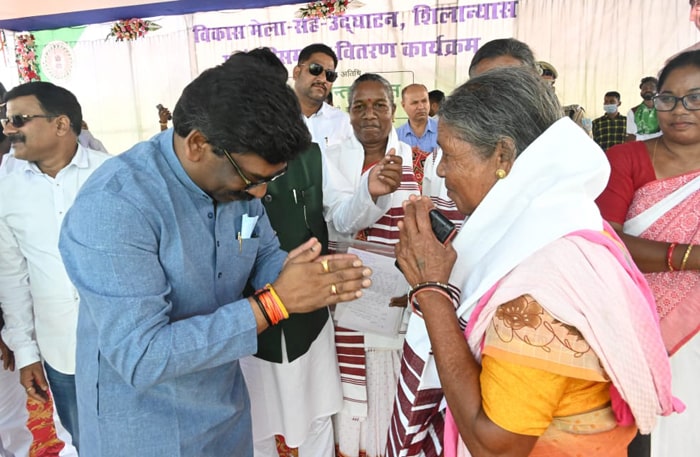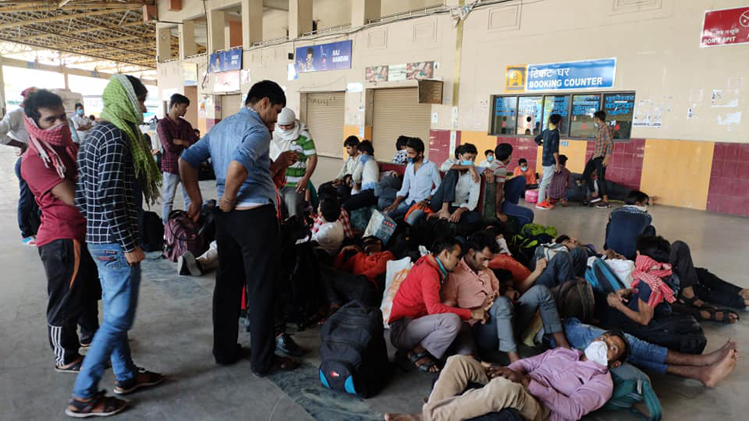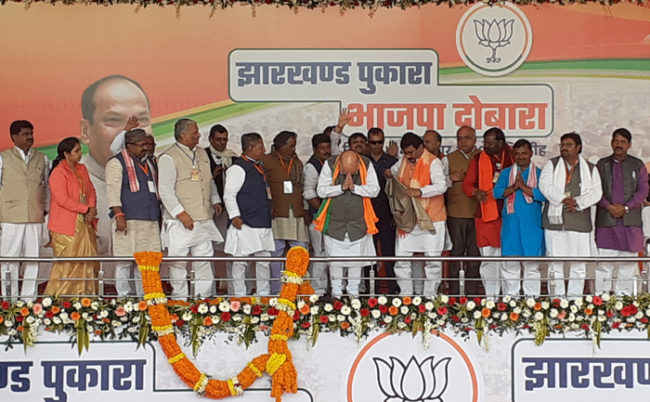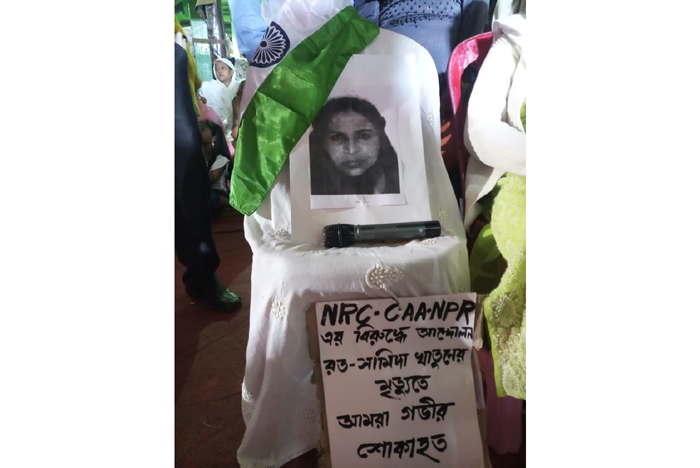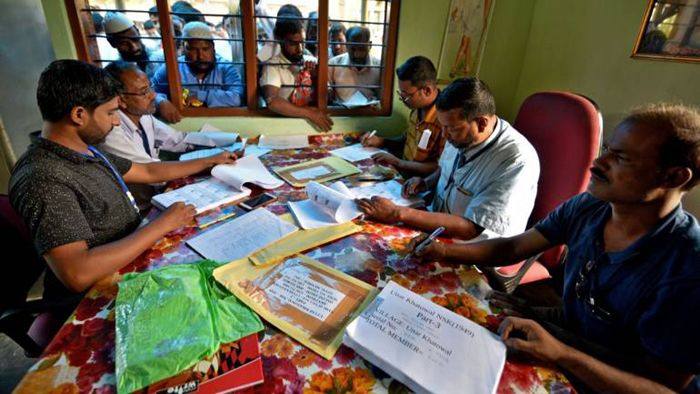Jharkhand’s second round goes to Mahagathbandhan, the alliance is strong on 3 out of 4 seats
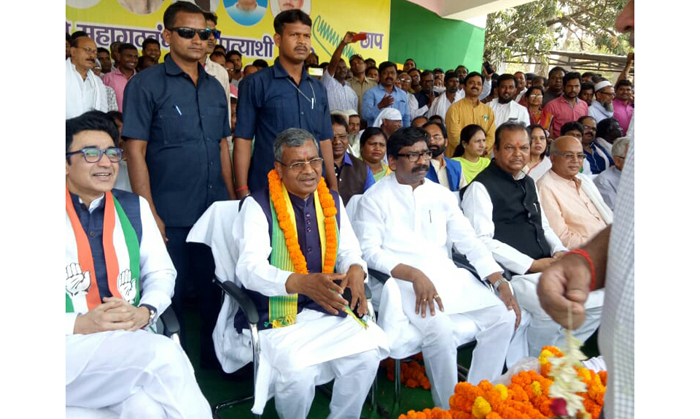
Ranchi: After Lok Sabha Election’s second phase of voting in Jharkhand, the trend seems going in favour of Mahagathbandhan as out of 4, 3 seats—Khunti, Ranchi and in Koderma, gathbandhan candidates are on stronger position.
If the reports of voting trend are to be believed, former Chief Minister Arjun Munda set to lose his election, as well as BJP candidates from Ranchi Sanjay Seth and Annapurna Devi from Koderma. Only, Jayant Sinha will be able to retain his Hazaribagh seat.
Political observers believe that there are reports of vote boycotts in some areas of Hazaribagh constituency, and in all these areas, if votes would have been polled, it might have gone against the incumbent member of parliament, Jayant Sinha.
In Khunti, Raghubar Das led BJP government’s forcible suppression of the Pathalgadi movement has angered the tribals and it worked against former chief Arjun Munda. Several organizations that work for the betterment of the marginalised have worked hard to mobilize voters to vote against the BJP candidate in Khunti.
On the other hand, all seem to be going well for the Mahagathbandhan and Congress candidate Subodh Kant Sahay in Ranchi. In Ranchi rural, Congress has managed to get a large chunk of votes.
In Koderma too, things have worked in favour of the Mahagathbandhan candidate – former chief minister Babulal Marandi. He too has been able to grab large votes from the unhappy BJP supporters, who have been vocal protesting against the party’s decision of denying a ticket to Ravindra Rai and fielding an outsider – Annapurna Devi.
“Reports are good and we are going to win with a good margin in Koderma,” claimed an excited Marandi while talking to eNewsroom.
On being asked how would BJP losing the Koderma seat impact the future politics of Jharkhand and centre? Replying to that the former CM said, “Voting in Koderma and Jharkhand has been anti-establishment, against Narendra Modi and Raghubar Das, so it means a lot.”
If Marandi manages to win Koderma seat, it will be really a mandate against PM Narendra Modi and CM Raghubar Das too, as not only the chief minister toured Koderma constituency four times but PM had also hold a rally here.
In the first phase Chatra, Lohardagga and Palamu voted, and here too, gathbandhan is in a strong position in at least two seats.
In the third phase, Giridih, Dhanbad, Jamshedpur and Singhbhum’s Lok Sabha constituencies will be voting on May 12, while May 19 polling will take place in Godda, Rajmahal and Dumka constituencies of Jharkhand.
However, in the evening, Marandi has alleged that the Giridih district administration which conducts the election for Koderma during Lok Sabha election is allegedly favouring BJP. The Jharkhand Vikash Morcha (JVM) chief has even written to the Election Commission of India regarding it. He has alleged that despite the availability of a strong room in Bazar Samiti, Giridih, why a separate cluster had been created in Satgawah, Koderma to store 51 booth’s Electronic Voting Machine (EVM) s?


